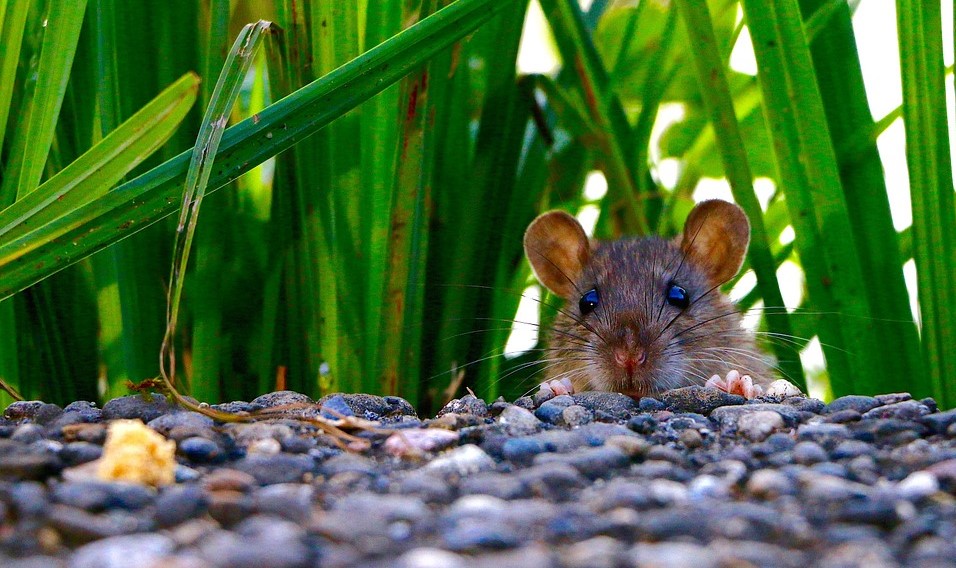 By B.N. Frank
By B.N. Frank
Modern Pest Services says the company offers a “green” solution to killing unwanted rats.
You heard him say “built-in cellular technology”, right?
That seems to indicate that the company’s devices use cell phone and/or wireless “Wi-Fi” technology. This is indicated on the company’s website too (see 1, 2). In 2021, a U.S. federal court ruled in favor of organizations and petitioners that sued the Federal Communications Commission (FCC) for NOT adequately protecting Americans from biologically and environmentally harmful wireless radiation exposure (including 5G). Got pets? Exposure can harm them too.
Perhaps the company isn’t aware of this lawsuit or the research. Perhaps the municipal employees and legislators who decided to invest in this technology aren’t aware of this either.
From Smart Cities Dive:
The latest front for smart city tech? Rat control
Dive Brief:
- The city of Somerville, Massachusetts, announced last week it’s launching a five-month rodent control technology pilot to help tackle the city’s festering rat problem, according to Somerville Environmental Health Coordinator and “Rat Czar” Colin Zeigler.
- Part of new Mayor Katjana Ballantyne’s 100-Day agenda, the Boston-area city and its partner, Modern Pest Services, will install 50 SMART Boxes in four neighborhoods at a cost of $40,000. The boxes are non-toxic and can catch rodents above ground, while also providing real-time data to proactively address the problems.
- The box locations were determined using 311 rodent report data and inspectional services ticketing information. Somerville is only the second city to use the technology, following Portland, Maine. The neighboring city of Cambridge, Massachusetts, is also now considering using the boxes.
Dense urban centers like Somerville are a “rat’s paradise,” according to Zeigler. Areas with lots of water, shelter and a lack of predators can provide an environment for rats to thrive, he said. On top of that, rats are getting smarter and adapting to their environments.
“The city wanted to find a way to catch up with them,” he said. “We wanted to look into ways we could automate the system, collect more data and target our efforts a little more efficiently.”
The pandemic has impacted rat populations in cities across the country. Because lockdowns initially forced many restaurants to close, rats were forced to find food waste elsewhere. That change led rats to scope out new areas for food and also become more aggressive, according to the 2021 ranking of the “rattiest cities” from pest control services company Orkin.
In fact, the presence of rats has become such a prominent issue that the U.S. Centers for Disease Control and Prevention issued guidance in May 2020 with suggestions for people to keep mice and rats out of their homes and businesses, noted Glen Ramsey, an Orkin technical services manager.
Construction and development in cities can also impact rodent populations. “Rats like consistency,” Ramsey said in an email interview. “Their eyesight is poor, so they don’t like construction or changes in the environment. Vibrations of jackhammers tend to drive them to new areas including up to the surface. Even if it’s happening on vacant land, development can destroy rodent burrows in the ground which sends them seeking shelter. This can feel like an invasion for homeowners and businesses in surrounding areas.”
Residents of Cambridge, Massachusetts, have taken notice: Vice Mayor Alanna Mallon said rats were the number one kitchen table issue that voters mentioned to her when she was on the campaign trail last year.
Cambridge, which also has a growing rat problem, is now looking to the work of Somerville and Portland to tackle their pesky problem with smart solutions.
The city manager recently put in a request to consult with the city’s public works department to also consider piloting a SMART Box program. To date, Cambridge has tried solutions like using 311 call data to determine hot spots and to provide free poisonous rat trap boxes for city residents. The city council is also considering hiring a dedicated “rat liaison” to help address the issue, according to Mallon.
The city has spent a significant amount of time and money to address the problem, she said, but “we’re just not winning this war.”
Activist Post reports regularly about unsafe technology. For more information visit our archives and the following websites.
- Environmental Health Trust
- Electromagnetic Radiation Safety
- Physicians for Safe Technology
- Wireless Information Network
Image: Pixabay
Become a Patron!
Or support us at SubscribeStar
Donate cryptocurrency HERE
Subscribe to Activist Post for truth, peace, and freedom news. Follow us on SoMee, Telegram, HIVE, Flote, Minds, MeWe, Twitter, Gab, What Really Happened and GETTR.
Provide, Protect and Profit from what’s coming! Get a free issue of Counter Markets today.
City Spends $40,000 to Test “Smart” Rat Control Technology for 5 Months